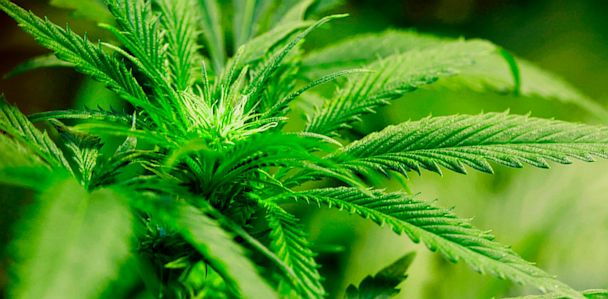DOJ Won't File Suit Against State Marijuana Laws

Credit: Ed Andrieski/AP Photo
The Justice Department won't take legal action against states that have approved recreational marijuana use, primarily because the government has only so much money in the pot, according to a Justice Department official.
Ever since Colorado and Washington approved recreational marijuana use nine months ago, the states have been waiting to see whether the Justice Department would sue them, citing federal law that prohibits marijuana use.
On Thursday, Attorney General Eric Holder called Gov. John Hickenlooper, D-Colo., and Gov. Jay Inslee, D-Wash., to tell them the federal government would not be filing lawsuits, the official said.
However, Holder informed the governors that federal prosecutors would now be operating under new enforcement guidance, aggressively pursuing prosecutions in eight "priority areas," the Justice Department official said.
The new guidance, outlined in a memorandum issued on Thursday to U.S. attorneys across the country, is based on a determination that prosecuting individuals simply for possession of marijuana is not the best use of limited federal resources, the official said.
"While the prosecution of drug traffickers remains an important priority, the President and the administration believe that targeting individual marijuana users, especially those with serious illness and their caregivers, is not the best allocation of federal law enforcement resources," White House spokesman Josh Earnest told reporters last week.
President Barack Obama echoed that sentiment months earlier, telling ABC News' Barbara Walters, "We've got bigger fish to fry."
Among other priorities outlined in Thursday's memorandum, the new Justice Department guidance tells federal prosecutors to focus on preventing marijuana from getting into the hands of children, preventing gangs or cartels from making money through marijuana, and preventing "drugged driving."
Marijuana use remains illegal under federal law, specifically the Controlled Substances Act, which describes marijuana as a dangerous drug. Still, 18 states have approved the use of marijuana for medical purposes, and in November, Colorado and Washington passed laws approving it for recreational use.
On the call with those states' governors Thursday, Holder told them the department reserves the right to bring a lawsuit at a later time, according to the Justice Department official.
In essence, though, Holder told them the Justice Department will not take legal action as long as the department's eight "priority areas" are pursued, and it will be up to the states to create systems and processes for such enforcement, the official said.
Holder called it a "trust but verify" approach, according to the Justice Department official.
The eight "priority areas" are:
- Preventing the distribution of marijuana to minors;
- Preventing revenue from the sale of marijuana from going to criminal enterprises, gangs and cartels;
- Preventing the diversion of marijuana from states where it is legal under state law in some form to other states;
- Preventing state-authorized marijuana activity from being used as a cover or pretext for the trafficking of other illegal drugs or other illegal activity;
- Preventing violence and the use of firearms in the cultivation and distribution of marijuana;
- Preventing drugged driving and the exacerbation of other adverse public health consequences associated with marijuana use;
- Preventing the growing of marijuana on public lands and the attendant public safety and environmental dangers posed by marijuana production on public lands;
- Preventing marijuana possession or use on federal property.